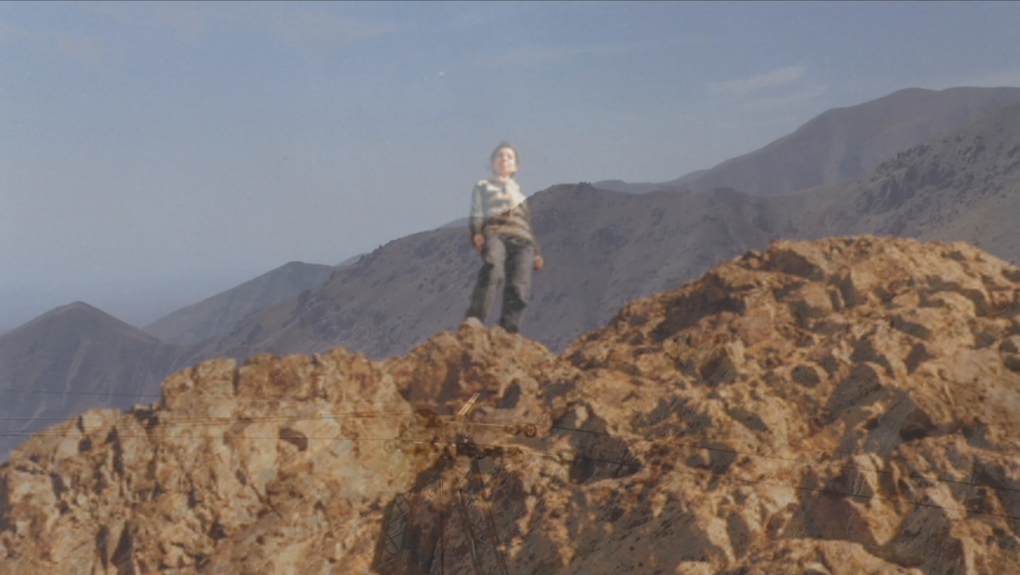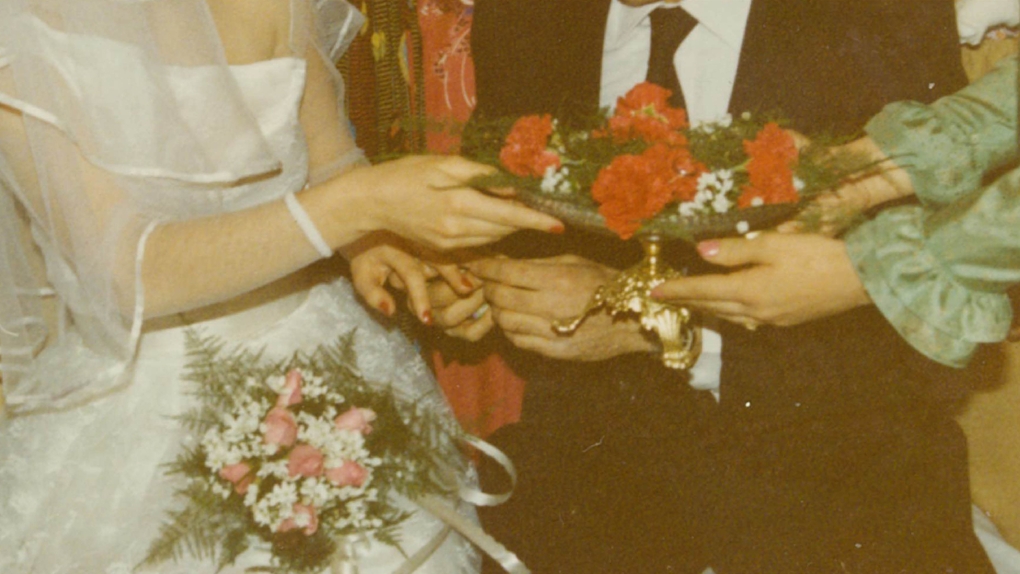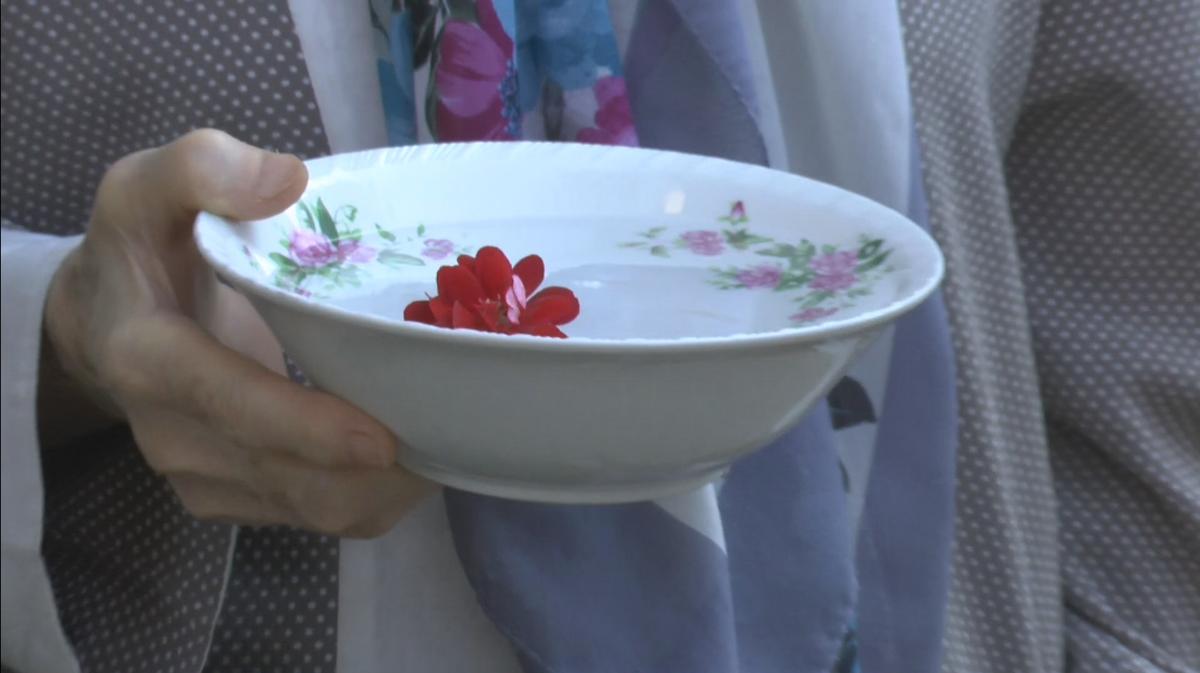The very classification “amateur” has an apologetic ring. But the very word—from the Latin amator, “lover”—means one who does something for the love of the thing
MOTHER TONGUE
“We are both dressed in black, our thighs and arms pressed up against each other like conjoined twins. The car creeps forward at an unnervingly slow pace. Our taxi driver warmly jokes that every Friday the entire city escapes into the mountains to inhale clean air and stretch out their contorted bodies; a brief respite from the interminable traffic that sprawls across the endless intersecting highways of this labyrinth of paradoxes and secrets.“(1)
This is the opening text from Selina Ershadi's contribution to Femisphere 2(2) as she writes about her visit to Iran in 2017. This scene is replayed in 2019 in her new film Amator. In a taxi her mother Azita and companion drive through the congested city of Tehran, they have travelled from New Zealand to visit family for three weeks. Selina was to travel with them but couldn’t go at the last minute, so she handed over her Panasonic Handycam to Azita to document the journey. Travelling in taxis and cars plays a large part throughout the film, jumpy images viewed through car windows become lenses and frames within frames—thickening the space between the past and present.
“The camera is an alien extension of my hand,“ says Azita. “How long is a sequence?” and “Zoom ...how do you zoom?” she asks. The artist’s mother is exasperated as she grapples with the use of the Handycam. In an early scene the camera is upside down on a bed and a figure moves around a bedroom within the frame, Azita is unpacking. The camera moves and looks out the window onto a street, a car passes as a male figure walks along the footpath. The camera, unknowingly recording again, placed upside down on a kitchen bench, captures muted conversations as a figure moves through to open a door. The camera is an eavesdropper and is becoming its own character in this film. This happens again as Azita and companions walk up the Alborz mountains which surround the city of Tehran. The camera, draped over her shoulder, is unintentionally recording. The lens points to the ground and we see feet, billowing scarves, skirts, these are magical moments, gifts of chance and accident …gold!!!!

Still from Amator (2019) Selina Ershadi & Azita Chegini
In the text from Femisphere 2 Selina writes about the freedom the circle of mountains provide, an escape from the city, fresh air, dawn walks with family, couples meet in private, head scarves loosened. We learn later in the film her father buried their books in the mountains as they were banned post revolution. This circle of mountains has served as protection but now barricades the pollution that forms and layers over the city.
Azita becomes familiar and confident with the camera. As she visits her parents, her mother cooks in the kitchen so familiar to her, the routine of cooking has remained unchanged since she was a child. The camera lingers over her mother’s hands and arms, repeatedly rolling and kneading dough as they talk. I am reminded of Chantal Akerman and her kitchen works, films which were an ongoing homage to her own mother. The kitchen becomes a site between feminity and domesticity, a place for connection across this maternal space where mundane activities are mixed with conversation.
In another sequence Azita is with her father looking through the family photo albums, her father has catalogued the albums into two groups, before and after the revolution. The camera lingers on a wedding photograph of Azita dressed as a bride, her veiled profile reflected in a round mirror. Azita asks in the voice over what she must have been thinking at that moment… the mirror of the past reflecting back in the present. The exhibition Amator also includes a photograph Untitled by Aref Ershadi, Selina’s father, printed from a 35m slide of tree taken from his mountaineering expeditions in Iran. The image has a glow and starkness pointing to the idea of "yeki bood, yeki nabood", "one was, one was not", reflecting on presence and absence.

Still from Amator (2019) Selina Ershadi & Azita Chegini
Selina selected Iranian poet and film maker Forough Farrokhzad as her artist for Femisphere 2—Forough’s work was banned after the revolution of 1979 . Her short film The House is Black (1962), a black and white documentary, looked at the neglected leprosy colony of Tebriz in Iran. I had seen this film at Documenta 14 and was moved by the starkness and beauty of the images and how the daily lives of the people were carried out with dignity. Farrokhzad’s narration was a mix of quotes from the old testament, the Koran and her own poetry. I watched it several times, returning on different days, it became a seminal work for me. The narration style in Amator is similar, as Azita has written and read the voice over, a mix of diary and memory creating space between voice and image. Here text and image shadow each other, mirror and weave together moments of time, telling stories through the mother tongue.
As Amator progresses, camera and mother become voyeurs as they move through the city, mountains, desert, interiors and exteriors. At times the camera is shared for others to use, it has become a family member. Near the end of the film Azita walks in the mountains before she leaves to find a particular tree she remembers, she walks past a park bench where a young couple are seated. The camera pans to them, an unobtrusive a glance, so natural, showing the camera is no longer alien—it has really become an extension of her hand.
Here text and image shadow each other, mirror and weave together moments of time, telling stories through the mother tongue.
Selina views her film projects as chapters or parts, included in Amator is a short film made from a found family VHS tape, Coffee Reading. This film from 2017 planted the seed for Amator, a family is reunited at an airport in Iran, family members greet and hug each other, a woman is caught looking at the camera and tugs her scarf. Next we are in a room where women are dancing, heads uncovered, we share their freedom in private. Selina has respectfully edited many hours of footage into a 35-minute sequence where time passes forwards and backwards, time and image blurs, long shadows are cast. Azita has become inspired and empowered by this process, this film, a collaboration between mother and daughter, it is a love letter.
I watched Amator three times on the last day in the last two hours of the show, with each viewing it was a richer experience and I was bought back to the opening quote from the gallery notes by Maya Dern and remembered watching her film Meshes of the Afternoon (1943). This was a crucial viewing experience for me as a student and still inhabits me, dreamy, fragmented images repeat, time and space collapse.
Here I write as an amateur, but I do it ”for the love of the thing.“
